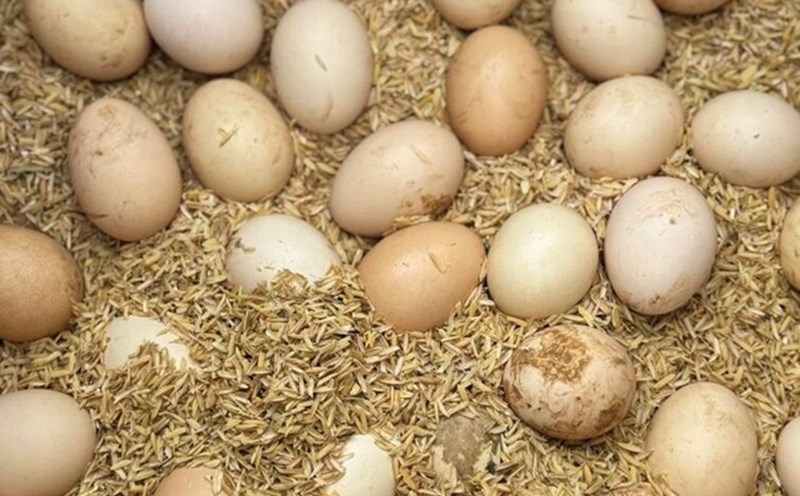Berries, a rich source of flavonoids
Berries are rich in anthocyanin, a plant compound with powerful anti-inflammatory and antioxidant properties. These substances help reduce neuropathy, support blood flow to the brain and improve communication between nerve cells.
Polyphenol compounds in berries not only protect brain cells from oxidative stress but also enhance the ability to regenerate new nerve cells, says Dr. Lisa Mosconi, Director of the Women's brain Health Center at Cornell University (USA).
Green leafy vegetables, vitamins and minerals for the brain
Vegetables such as spinach, kale, and kale are rich in vitamin K, lutein, and folate. These nutrients help slow down cognitive aging and protect brain structure. A 10-year study at rush University (USA) showed that people who ate a serving of green vegetables per day had a slower rate of memory loss than those 11 years younger.
Walnuts, plant-based omega-3
Walnuts provide ALA, a plant-based omega-3, along with many beneficial polyphenols and antioxidants. They help reduce inflammation and maintain the integrity of nerve cell membranes.
According to Dr. Martha Clare Morris, a neuropritionist at rush University, supplementing about 30 grams of walnuts per day can improve memory and concentration in the elderly.
Fatty fish, EPA and DHA protect the brain
Salmon, sardines and herring are rich sources of EPA and DHA two omega-3 fatty acids that play an important role in the structure and function of the brain. Studies by the US National Institutes of Health (NIH) show that people who eat fish at least twice a week have a 30% lower risk of Alzheimer's disease than those who eat little or no fish.
Olive oil, the secret to the Mediterranean diet
Whole olive oil is rich in polyphenol compounds that help reduce inflammation and fight oxidation. The Mediterranean diet, with olive oil as a major ingredient, has been shown to reduce the rate of cognitive decline and the risk of mental decline.
Dr. Emilio Ros, Barcelona Clinic Hospital ( Spain) commented: "Just adding one tablespoon of olive oil per day to your diet can improve cognitive function in older adults".
Beans and legumes, rich in vitamin B and antioxidants
Lentils, soybeans and other beans are a source of folate, magnesium and flavonoids. These nutrients improve blood flow to the brain, support the formation of neurotransmitters and protect brain cells from damage.
No single food can completely prevent Alzheimer's. However, combining the above healthy foods with exercise habits, quality sleep and mental activities will create an effective "shield" to protect the brain.
Its important to maintain a varied diet, prioritize natural, nutrient-dense foods and limit sugar and saturated fat, recommends Dr. Mosconi. This is the best strategy to maintain long-term sharp memory".











